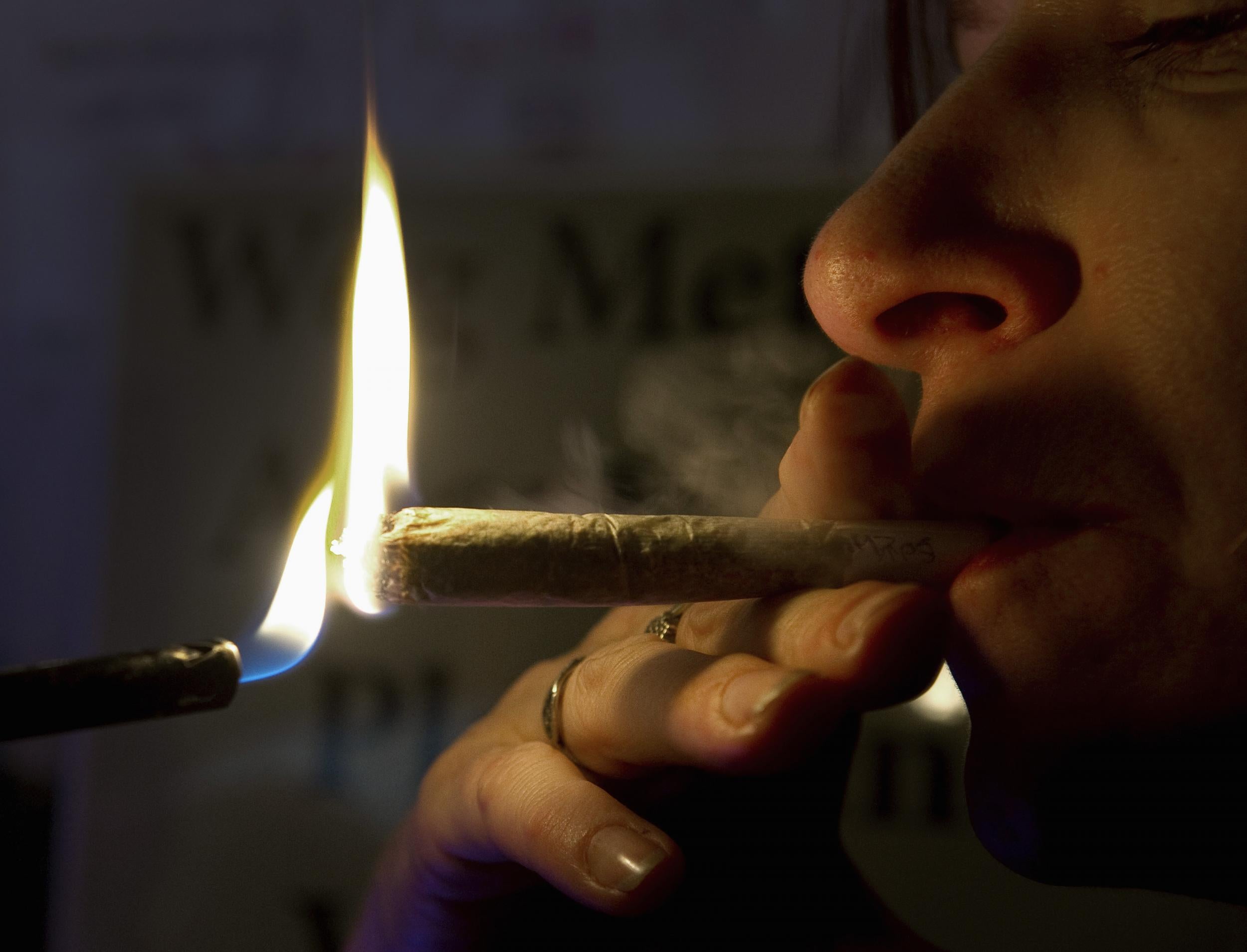As Imperial Tobacco hires a medical marijuana expert, can legalised dope save the industry?
Tobacco companies are facing new restrictions in the developed and developing worlds so it makes sense for them to look into new revenue streams, but can the other weed work for them?

Imperial Brands’ hiring of an expert in the field of medicinal cannabis to its board is one of the more interesting business stories to have emerged in recent weeks.
Simon Langelier, who has joined as a non-executive director, is the chairman of PharmaCielo, a supplier of medicinal grade cannabis oil extracts.
Significantly, during his 30-year career at rival tobacco outfit Philip Morris (despite the name, Imps is a tobacco company), Mr Langelier headed up next generation products. Can you see where this is going?
Could the next step be the launch of Imperial Spliffs?
Of course, I jest. But while Imps would probably never admit to this, there is a reason it changed its name from Imperial Tobacco: the latter is no longer a respectable product, at least not in the West.
It is heavily taxed. Restrictions on how it is sold are becoming progressively tighter. So are the restrictions on where it can be smoked.
It is years since sports events were allowed to carry tobacco branding, and Hollywood heroes no long partake of it on the silver screen. Watch the original Ghostbusters, and then the recent reboot. The gender of the fictional heroes isn’t the only difference between the two.
Faced with that, big tobacco turned to the developing world, but speak to Action on Smoking & Health (ASH) and you'll learn that regulations there are tightening, albeit not as quickly as the organisation would like, while taxes are rising. Money has also been made available to help with the drafting and enforcement of new regulations through the World Health Organisation. Bloomberg kicked in a substantial sum towards that end a while back.
As such, it makes sense for companies in the sector to investigate new revenue streams. Research into the medical uses of marijuana has gradually increased, and political resistance has slowly (our youth will all become drug addicts if we allow it!) been breaking down. Could Imps’ move ultimately lead to something for shareholders to put in their pipes and smoke? With the obvious next step being recreational use?
I admit to speculating wildly here, but we’re talking about a smokable product after all, and while liberalisation for purposes other than medicinal has proved to be highly controversial, it is beginning to happen.
Uruguay has it. Certain US states, largely in the country’s west, have also moved in that direction. There are tax revenues to be had, not to mention the benefits of taking an industry away from criminals. Now, just think about what might happen if tobacco company lobbying cash, and I mean serious lobbying cash, was put behind getting those points across.
Over here, British politicians are too scared of the Daily Mail to contemplate anything like it at the moment, despite what many of them got up to while they were at university (some even admit to inhaling). The Liberal Democrats made a (rather sensible) manifesto commitment to raise £1bn plus through taxing and regulating it, but their influence is limited right now.
There are health issues connected with the drug, and it would be foolish to ignore them. Interestingly, however, ASH says the biggest risk with liberalisation is the potential for people to become addicted to tobacco through smoking a combination of the two (the most common method of consumption in Britain).
Of course, that could make for a double win for tobacco companies that get in early! Hence Imperial Spliffs!
But perhaps not. For a start, places where there has been liberalisation have witnessed the rise of tobacco free methods of consumption. Pipes and bongs are just the start of it. Hand me a space cake, would you?
The other big problem for big tobacco? Those who partake of the other weed often tend to be young and liberal minded.
Business news: In pictures
Show all 13Right now they utilise the black economy because they have no other option. They might not, however, see dealing with the legal big tobacco as all that different.
Hey, Imperial Brands: full marks for trying and looking to the future. Your shareholders will think well of that. But a tobacco company being involved with a medical product? It’s true that British American Tobacco once owned a life insurance company. No, really. Two of them in fact. Allied Dunbar and Eagle Star. But still.
Recreational marijuana is a different matter of course. But you might very well find that even if it is taxed, and regulated, as I think it eventually will, and should be, big tobacco could find the market a tougher one to crack than it might imagine.
Subscribe to Independent Premium to bookmark this article
Want to bookmark your favourite articles and stories to read or reference later? Start your Independent Premium subscription today.

Join our commenting forum
Join thought-provoking conversations, follow other Independent readers and see their replies